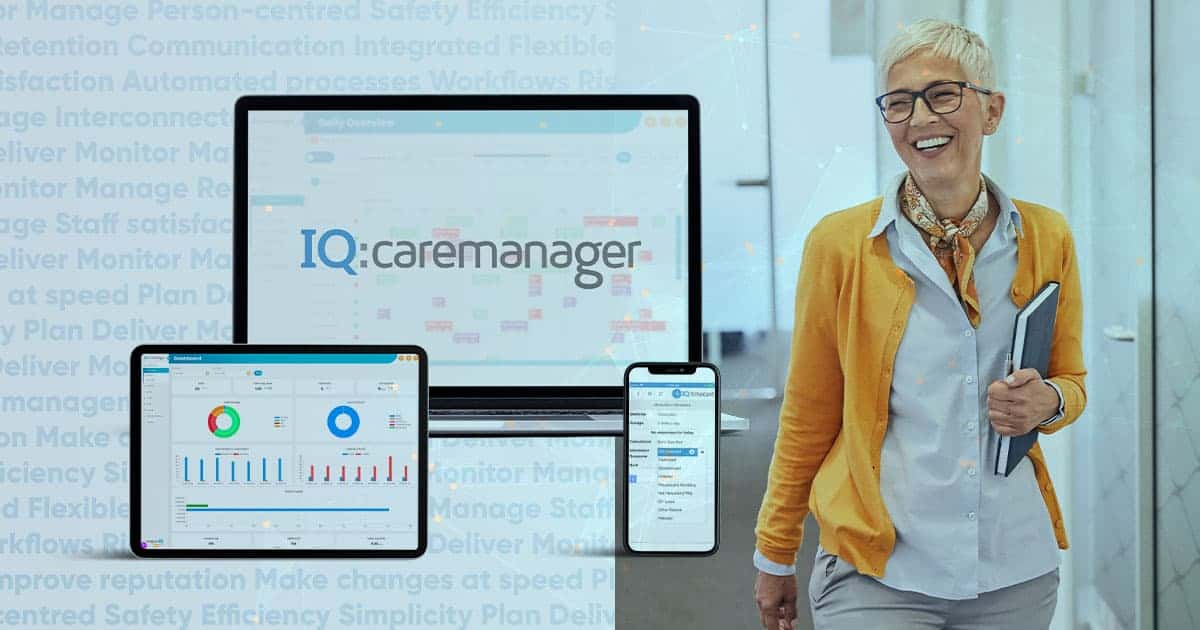
Supporting the teams that help people live well at home
By David Lynes, CEO & Founder of Unique IQ
This month I spent a brilliant couple of days with my team at the Care Show. The atmosphere was electric and energy levels were off the charts. Hats off to Michael Corbett and the rest of the Care Show team for going beyond expectations with this landmark event in the care industry calendar.
Being in a room with like-minded people always inspires me. And having the opportunity to meet with so many people on the frontline of care – talking to both businesses owners and carers alike who are trying to make a difference in social care – always brings me back to why we’re here. To support the teams that help people live well at home.
As you’ll most likely know, we’re a software provider to the care industry here at Unique IQ. We make the technology that helps to make sure people receive the right care, from the right carer, at the right time, while remaining at home. We’re in the background, but our software is there to assist home care agencies to run efficiently, responsively and successfully, so that they can focus on the most important thing – care.
To make that relationship a smooth one, there are three things I think are important to consider in home care technology.
- Data
- Interoperability
- Collaboration
They might sound like buzzwords; but let me break them down.
Data
The term ‘data’ can sound overwhelming and overly scientific. But at its essence, all data is, is the little nuggets of information we gather on a day-to-day basis. In a care setting, it’s how someone takes their tea in the morning. Or it’s a dose of a medication. Or it’s the time a carer arrived at a visit. Piece all of that together and you have the full story. And armed with that, you can take some action.
I’ve talked a lot about how data is power in home care. How collecting, visualising and exploring data can lead to better person-centred care. But data is also important at the macro level. One of the big barriers to development for home care (and indeed social care more widely) has been the lack of consistent, national data, unlike in the NHS for example, which makes it difficult to plan, finance and respond to need. So I was glad to see that work has begun this month on a national Minimum Data Set for homecare, with researchers from Newcastle and York universities launching a survey to assess how homecare data could be collected, recorded and stored. As software providers, we’d love to have a role in this.
Interoperability
Social care’s favourite buzzword right now, interoperability is arguably harder to pronounce than to understand! In software terms, it means the ability for different systems to work together. To exchange information (or data) and to connect to each other.
It’s something we get asked about a lot. So we built the next generation of our home care software using an API framework, which means that it’s easy to send information between IQ:caremanager and other systems that a home care agency might be using. Which leads me nicely onto my final point – collaboration.
Collaboration
For me, in the context of what we do, collaboration means not developing a piece of technology in isolation. To be interoperable, software providers need to work in collaboration, not conflict, with each other, to develop the best solutions for care organisations and the people they serve. It also means care organisations and software providers collaborating to jointly create systems that are shaped around client needs.
A shining example of this was the recent winner of the Care Innovation Challenge – decided at the Care Show in October. Team CHIP’s idea was a cashless solution for adults with learning disabilities to support independent living. Mentors from Think Local Act Personal (TLAP) ensured that people with lived experience were an integral part of creating the solutions put forward within the challenge.
Chair of the judging panel and CEO of the National Care Forum, Professor Vic Rayner OBE, said: “Team CIP’s idea […] demonstrates how important co-production is, as it puts the voice of adults with learning disabilities at the centre of the innovation.”
I’m really encouraged by the progress I’m seeing at the moment – from the conversations had at the Care Show to the joint working initiatives happening all over the sector. Unique IQ’s vision is for a data-driven, connected, collaborative home care sector and I think as a collective, we’re well on the way to achieving that.